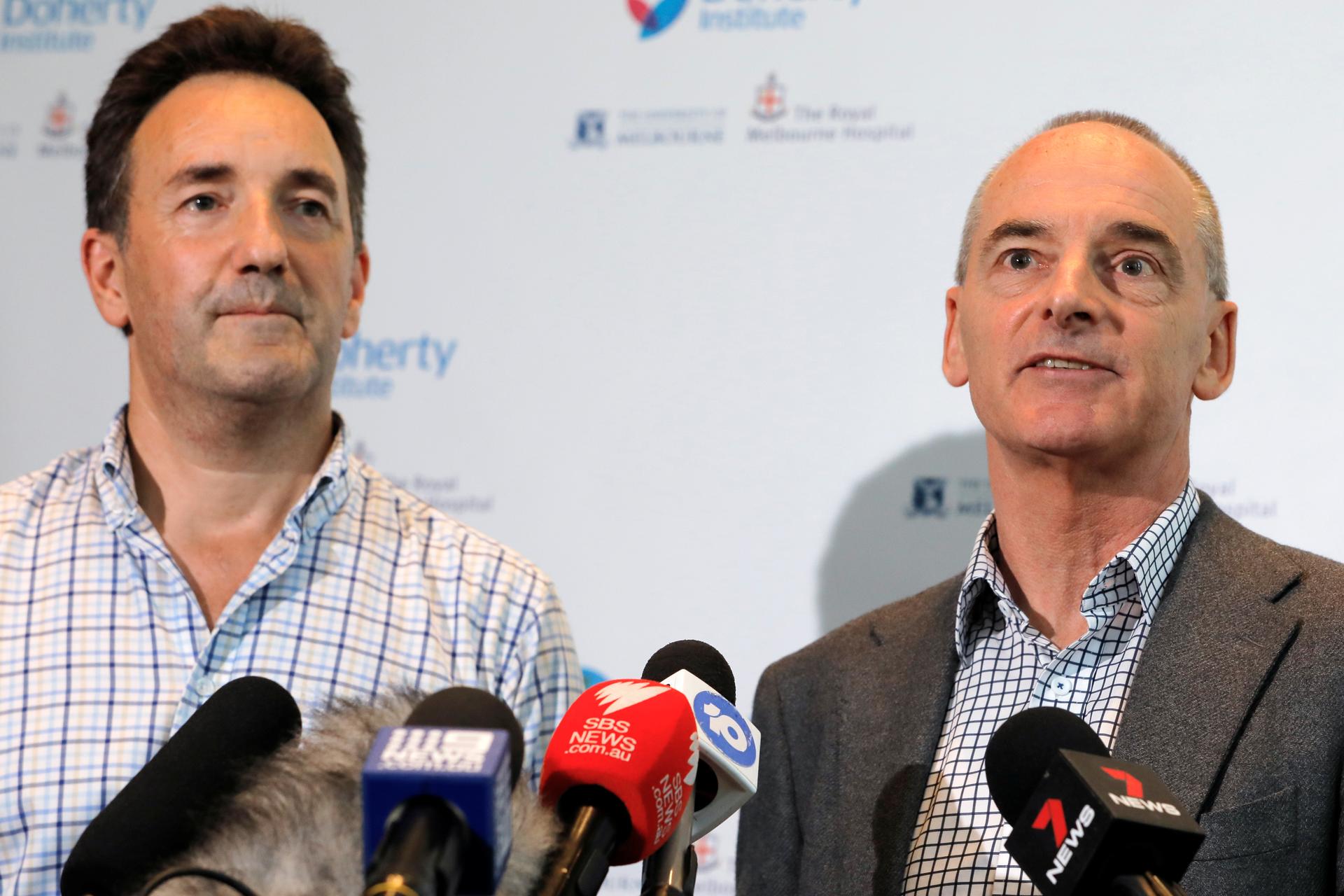MELBOURNE -- A team of scientists in Australia said on Wednesday they have successfully developed a lab-grown version of the new coronavirus, the first to be recreated outside of China, in a breakthrough that could help quicken the creation of a vaccine.
The researchers at the Peter Doherty Institute for Infection and Immunity in Melbourne said they would share the sample, which was grown from an infected patient, with the World Health Organization and laboratories around the world.
“This is a step, it’s a piece of the puzzle that we have contributed,” Doherty Institute Deputy Directo Mike Catton told reporters, while noting the development alone would not turn the tide in the battle against the virus.
The flu-like virus broke out in the central Chinese city of Wuhan at the end of 2019. While China has since moved to lock down most of Hubei province, which has a population around the same as Italy, the virus has still spread to more than a dozen countries from France to the United States.
A laboratory in China had already successfully grown the virus but had released only the genome sequence, not the sample itself, the Australian Broadcasting Corp. reported.
Raina MacIntyre, who runs the Kirby Institute’s Biosecurity Research Program, said the creation and sharing of the virus sample would hasten the development of potential vaccines, as drugs could be tested on animals injected with the disease.
“More people are able to culture the virus, they can use the information to develop drugs, vaccines, and better characterizes the nature of the virus and the transmission,” MacIntyre told Reuters by telephone.
As well as contributing to the creation of a vaccine, the Australia-grown sample could be used to generate an antibody test, which would allow detection of the virus in patients who had not shown symptoms, the Doherty Instite said.
“Having the real virus means we now have the ability to actually validate and verify all test methods,” said Julian Druce, the institute’s virus identification laboratory head.
China confirmed on Tuesday that the national death toll had risen to 132 on Tuesday, with 5,974 confirmed cases. The virus spreads in droplets from coughs and sneezes and has an incubation period of up to 14 days.
The Peter Doherty Institute is a joint venture of the University of Melbourne and Royal Melbourne Hospital. The Kirby Institute is attached to the University of New South Wales.





















































